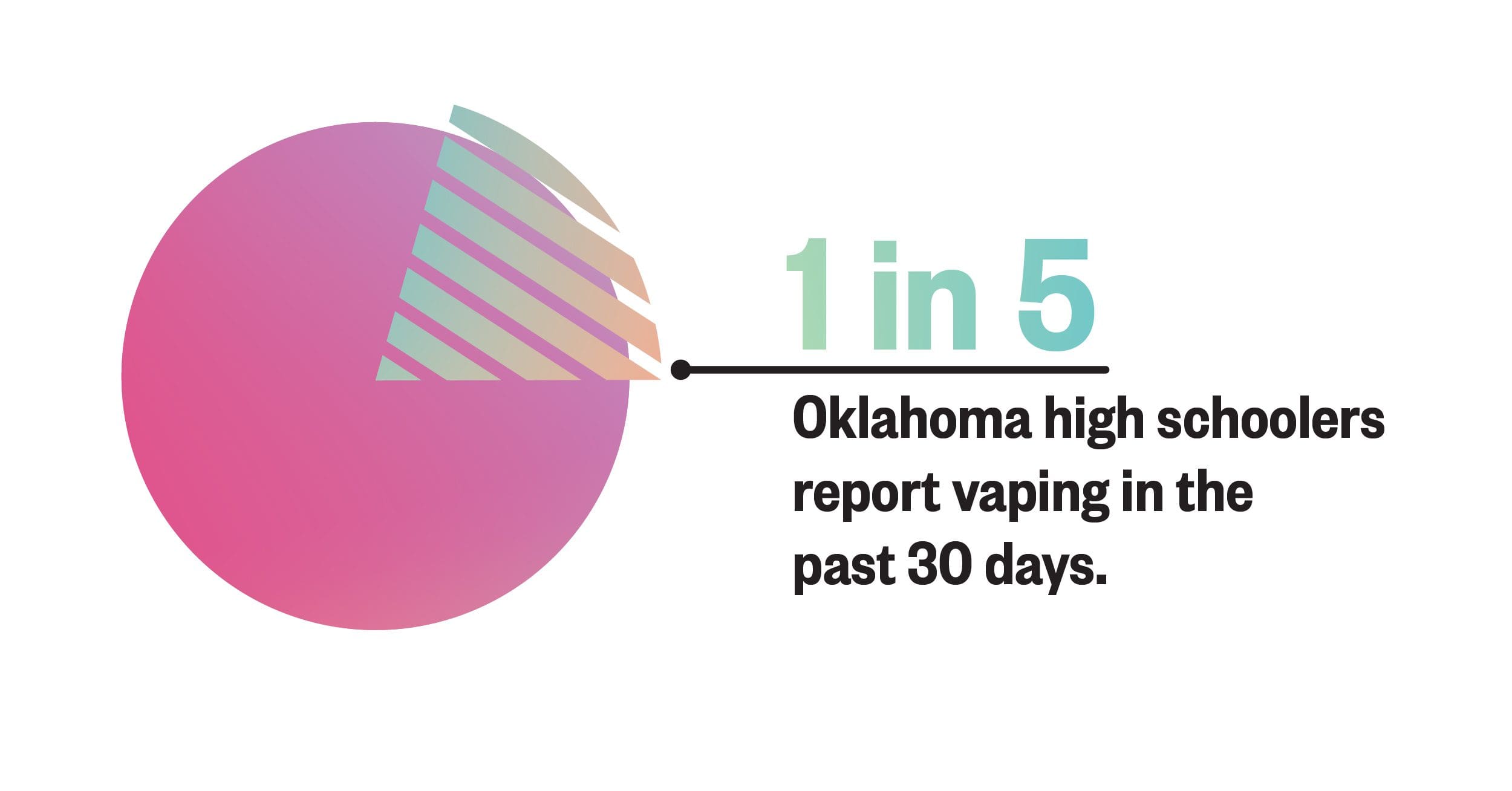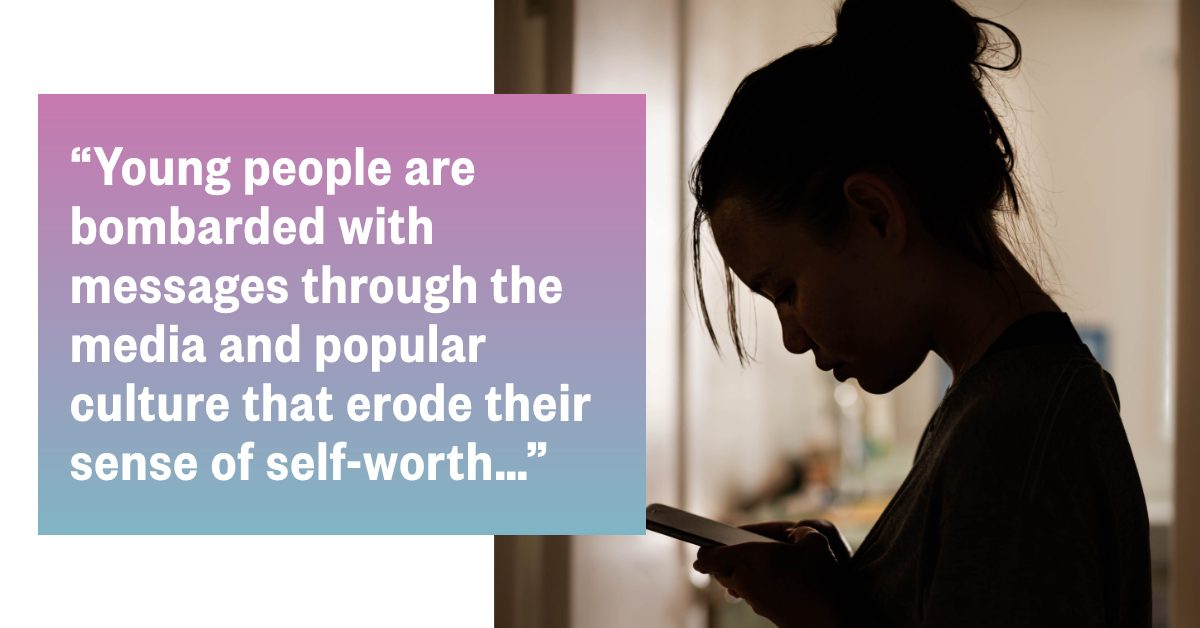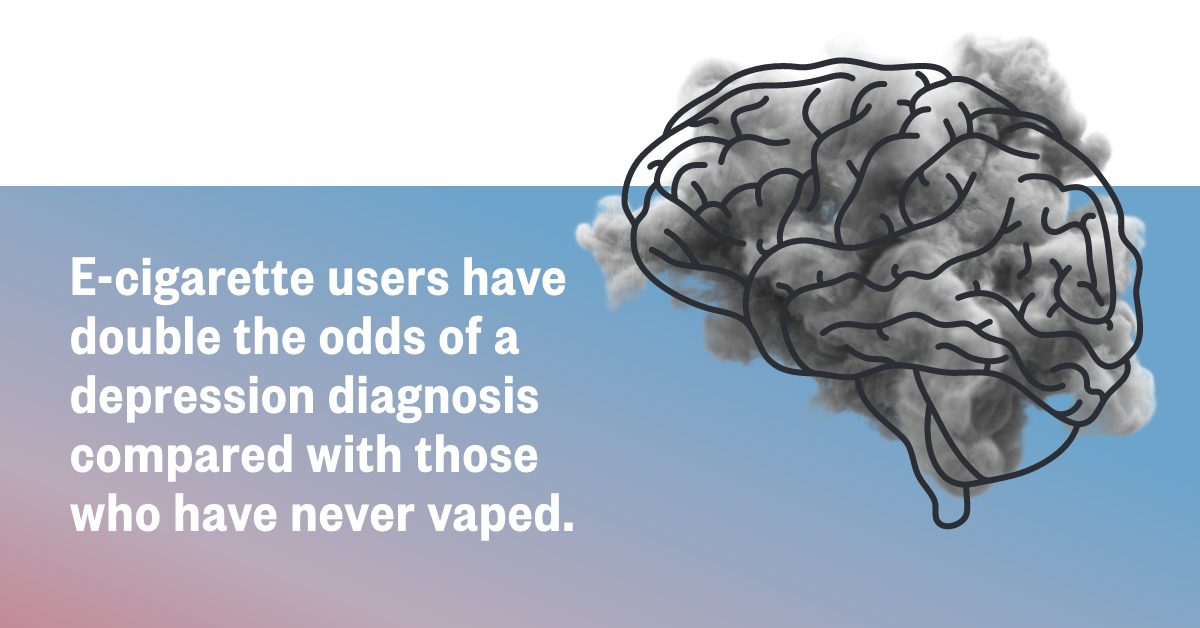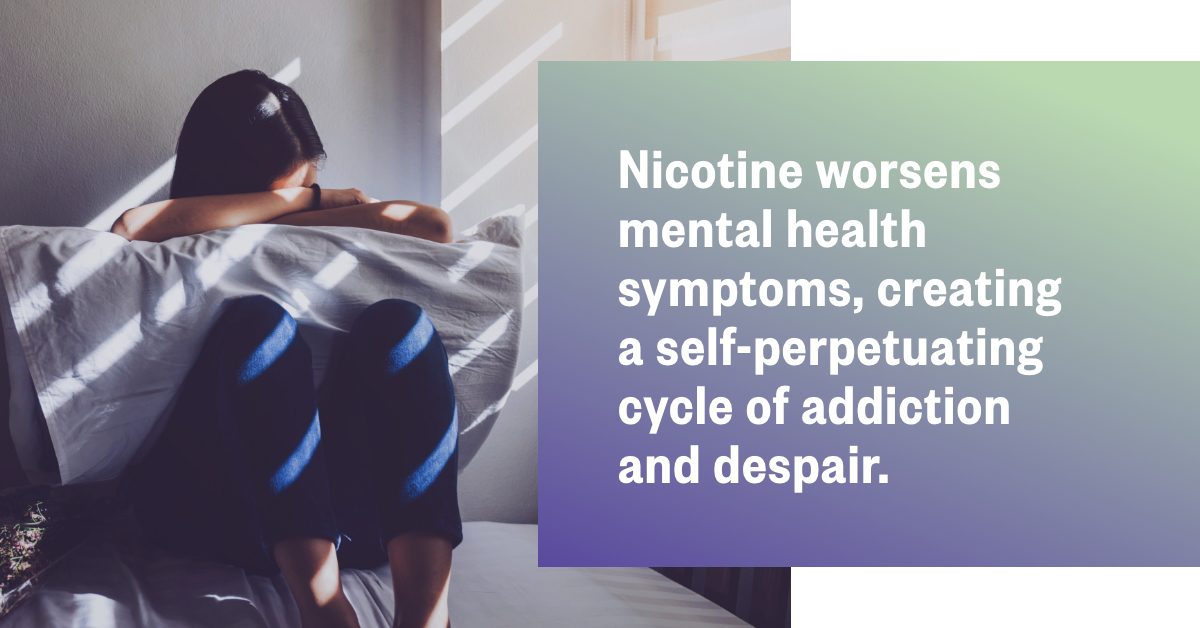The New Mental Fog: How the Vaping Epidemic Impacts the Teen Mental Health Crisis
Oklahoma teens are caught in the grip of twin crises threatening the health of a generation from the dangers of vaping. As mental health professionals sound the alarm, a vaping epidemic is sweeping middle schools and high schools across the state. How are these unfolding disasters related? Let’s dive into the research to get a clearer picture.
Nicotine Causes Serious Mental Health Problems in Teens
For years, we’ve known that nicotine harms developing brains. In teens, it can cause memory, learning and behavior problems later in life — plus a greatly increased risk of addictive behaviors.
Today, new research is revealing serious and immediate mental health risks associated with underage nicotine use. They include:

- Learning difficulties
- Mood swings
- Anxiety
- Headaches
- Impulsivity
Why is this a problem? Nicotine use is skyrocketing among Oklahoma teens.

The Teen Mental Health Crisis
For many, the teen years are a period of intense stress. Hormonal changes, social pressures and academic challenges contribute to anxiety. Modern teens are more worried about societal problems than their predecessors — and social media fosters unhealthy expectations related to self-image and popularity.
In October of 2021, the American Academy of Pediatrics, the Children’s Hospital Association and the American Academy of Child and Adolescent Psychiatry declared a joint “national emergency” in youth mental health. In December of the same year, Surgeon General Vivek H. Murthy warned that teens face devastating mental health effects unseen in previous generations. He commented:
“Young people are bombarded with messages through the media and popular culture that erode their sense of self-worth — telling them they are not good-looking enough, popular enough, smart enough or rich enough…”
The Mental Health Crisis Is Fueling Addiction
Thanks to decades of deceptive marketing, tobacco is often viewed as a stress reliever. It’s no mistake that stressed-out teens are flocking to nicotine. According to an August 2021 survey by the Truth Initiative:
- 4 out of 5 of youth who had used e-cigarettes started vaping to deal with stress, anxiety or depression.
- 1 out of 2 youth vapers use e-cigarettes to deal with stress or anxiety.
- In a separate study, two of the most common perceived advantages of vaping were “relaxation and stress relief.”

Tobacco and Vape Companies Are Exploiting the Crisis
Big Tobacco spends billions on market research, so they understand the teen mindset. Vape companies target youth on social media, and they craft messages specifically designed for teen audiences. This “Solo Break” ad from Puff Bar is a perfect example. It promises that toxic vape products will help kids “stay sane” and escape from “parental texts” and “stress.” It’s perfectly crafted to prey on the minds of stressed-out teens.

The Truth About Nicotine and Mental Health
Far from being a solution, nicotine use worsens mental health problems among teens. Research reveals numerous connections, including:
- Nicotine can worsen symptoms of depression and anxiety.
- E-cigarette use is linked to greater depressive symptoms like sadness and crying spells.
- E-cigarette users have double the odds of a depression diagnosis compared with those who have never vaped.
- Vaping nearly doubles the risk of ADHD symptoms including serious difficulty concentrating, remembering or making decisions.

A Dangerous Feedback Loop
The evidence is clear. Teens are experimenting with nicotine to deal with increasing stress — but nicotine addiction has exactly the opposite effect. It worsens mental health symptoms, creating a self-perpetuating cycle of addiction and despair. These twin crises are endangering the future of an entire generation… and nicotine addiction is a disadvantage our youth cannot afford.

Being a Teen Is Hard Enough… Without Nicotine Addiction
Oklahoma teens are living through an unprecedented period of upheaval. Confronted by social divisions, peer pressure, increasing violence, the COVID-19 pandemic and a toxic social media environment, it’s no wonder they’re struggling. Adding nicotine addiction to the mix is like pouring gasoline on a fire.
As parents and community leaders, it’s up to us to protect our youth from tobacco products — because nicotine addiction is a serious threat our kids just shouldn’t have to face, they should know how it feels to quit vaping.







